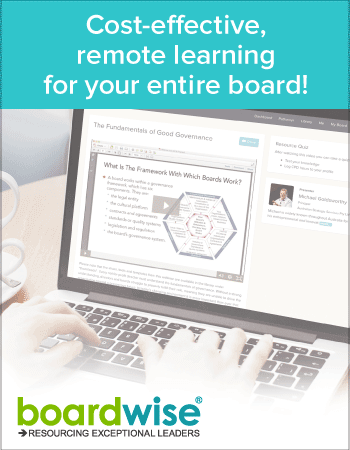How to Provide the Information Your Board Needs for Effective Decisions
-
boardpacks
Board Packs How to Provide the Information Your Board Needs for Effective Decisions
Equipping the board with comprehensive yet digestible information is crucial for directors to provide impactful guidance. How can management fulfil its reporting role to empower board decisions?
Understand the Board’s Perspective
Recognise that the board’s information needs differ from management’s operational requirements. While executives track daily metrics and project details, the board requires strategic big picture view to advise and oversee the organisation’s strategic direction effectively.
The board requires a strategic big picture view.
Provide data illuminating performance trajectories, competitive landscape, market shifts, risk exposures, new regulations, and other factors directors must consider for strategy and oversight. Spotlight substantive issues warranting board-level attention.
Avoid assuming directors possess the same internal knowledge as management. Fill essential context gaps without flooding with granular minutiae not enhancing the board’s field of view. Information presented should meet the board’s requirements.
Present Strategically Focused Data
Board reporting should focus on conveying data and insights that directly empower board deliberations and director duties. Useful board information is:
-
Relevant to significant pending board decisions and discussion topics on the agenda
-
Focused on monitoring corporate performance, financial position, legal obligations, and risk management
-
Material to core strategy including new initiatives and realignment options
-
Related to CEO and executive team development, composition and incentives
-
Highlights external perspectives from analysts, media, and advisors on the company
Conversely, minor operational details that do not illuminate high-level decision making often distract rather than enhance. Apply disciplined judgment on relevance when compiling board reports.
Communicate Concisely and Clearly
Board packs tend to expand inexorably over time. It takes discipline to reduce board pack sizes and keep them under control. Resist information overload by distilling insights into concise executive summaries, infographics, dashboards and visualisations.
Use clear language suited to strategic conversations, avoiding jargon and assumed knowledge. Define any technical terms, acronyms and shorthand. Make interpretation accessible rather than requiring the reader to have expert knowledge.
Apply the “reasonably intelligent person” test - could someone reasonably smart but outside the industry grasp key takeaways easily? If not, revise your approach.
Verify Quality of Supporting Data
Board reports should aim to provide substantiate insights with accurate, current data from reputable sources using sound methodology. Avoid conveying preliminary analysis as definitive. Caveat any unverified data as provisional until rigorously validated.
Scrutinise underlying assumptions in financial projections, market sizing, competitive assessments and other analytics. Provide context around margin of error and scenario analyses. Highlight limitations alongside insights.
Structure Logically for Navigation
Organise information in order of importance and relevance to board deliberations. Number sections and pages for easy citation and navigation during meetings.
Include executive summaries orienting readers. Use informative section headings, bulleted lists, and bold text to guide focus. Make critical figures and conclusions prominent through placement, formatting and repetition.
Facilitate understanding of relationships between information through clear cross-referencing, transition summaries and linkage reminders. Roadmaps aid assimilation.
Enrich with Visuals
Graphs, charts and diagrams bring salient patterns and relationships to the fore at a glance. Judiciously illustrate key statistics, financials, market share, organisational structures, processes, timelines and other complex data visually.
Balance clarity with depth - avoid either oversimplifying or overwhelming with exhaustive but tangential charts. Integrate meaningful visuals within related text rather than cordoning off.
Emphasise Insights, Not Just Data
Reporting to the board should emphasise insightful analysis more than raw data. Directors need help connecting dots and identifying interdependencies between information.
Call attention to crucial nuances that could impact board judgments. Pose insightful questions prompting reflection. Weigh alternative scenarios. Highlight blind spots where directors should seek external perspectives.
The goal is synthesising data into wisdom guiding strategy - not just conveying disjointed numbers.
Solicit Ongoing Board Feedback
Check post-meeting with directors if information presented met their needs. Probe suggestions for additional data or external expertise to provide a more robust fact base and range of options for decisions requiring careful balancing.
Implement continuous improvement processes to realign reporting with the board’s evolving needs and priorities. Lean reporting keeps oversight focused and progressing.
The Bottom Line
Effective board decisions stem from informed judgments grounded in quality information. Wise executives recognise their role providing the board with the comprehensive yet digestible insights required for impactful governance and guidance.
They focus reporting on substantive matters amplified through visuals and synthesis. Rigour around relevance, accuracy, clarity and completeness breeds trust in management’s transparency. The result is engaged directors who are empowered by timely access to the information they require.
Additional Resources
Company Secretary Playbook: Effective Board Meetings
Company Secretary Playbook: The Art of Reviewing and Refining Board Papers
How to Structure Your Board Packs
Frequently Asked Questions
Who provides information to the board?
Common providers of board information include:
- Management - performance reports, proposals
- Auditors - financial statements, audit findings
- Legal counsel - legal risks regulatory updates
- Outside experts - analyses, assessments
- Board committees - recommendations
What source of information should the board use in order to make well informed decisions?
The board should use information from management, auditors, legal counsel, consultants, analysts, and other credible third-party sources. Information should come directly from the source rather than being filtered whenever possible.
What information should be provided to the board?
The board should be provided with relevant information to help them fulfil their oversight responsibilities, such as financial statements, performance reports, risk assessments, legal updates, competitor analyses, and strategic plans. Information should be accurate, timely, and presented clearly and concisely.
What are the 4 key steps to making informed decisions?
- 1. Clearly define the issue or decision required
- 2. Gather complete and balanced information
- 3. Analyse information objectively
- 4. Make decisions aligned with duties and strategy
-



